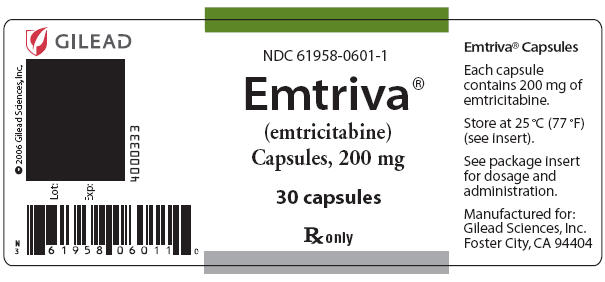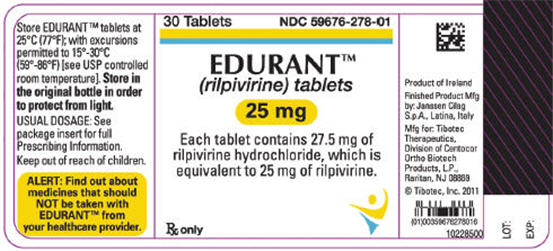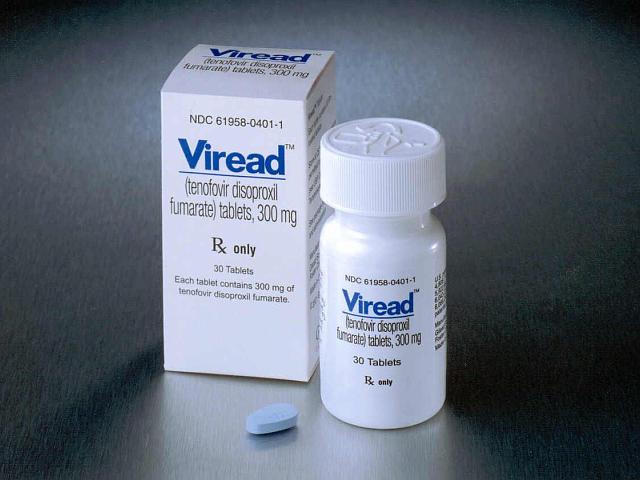


Clinical Context
On August 10, the US Food and Drug Administration (FDA)
approved Complera, a combination of the nonnucleoside reverse transcriptase
inhibitor (NNRTI) rilpivirine and the nucleoside reverse transcriptase
inhibitors (NRTIs) tenofovir and emtricitabine, for treatment of HIV infection.
This combination drug results in the same blood levels as each of the
3 drugs individually, according to the findings of a bioequivalence study.
Approval of Complera was based on the ECHO and THRIVE phase 3 randomized trials
of rilpivirine, without performance of any new trials.
Study Synopsis and Perspective
The FDA granted approval of Complera, a once-daily, 3-drug combination for treatment-naive HIV-infected patients.
Complera is a single tablet that contains rilpivirine (Edurant, Janssen Pharmaceuticals), an NNRTI, and tenofovir (Viread, Gilead Sciences) and emtricitabine (Emtriva, Gilead Sciences), both of which are NRTIs.
Approval of the combination drug was based on previously conducted phase 3 randomized studies (ECHO and THRIVE) of rilpivirine, on which approval of that drug was based. No new studies were conducted for approval of Complera.
A bioequivalence study demonstrated that the triple-drug tablet achieved the same blood levels as each of the drugs administered individually.
The recommended dose of Complera is 1 tablet, containing emtricitabine 200 mg, rilpivirine 25 mg, and tenofovir 300 mg, once daily, to be taken with food.
Cautions, Adverse Reactions
The FDA issued the following cautions in announcing the drug's approval:
More patients with HIV-1 RNA levels greater than 100,000 copies/mL at the start of therapy experienced virologic failure vs patients with lower HIV-1 RNA levels at the start of therapy with rilpivirine.
The virologic failure rate in rilpivirine-treated participants conferred a higher rate of overall treatment resistance and cross-resistance to the NNRTI class compared with efavirenz.
More patients treated with rilpivirine went on to have lamivudine/emtricitabine-associated resistance compared with efavirenz.
The most common grade 2 to 4 adverse drug reactions to rilpivirine, occurring in 2% or more of patients, are insomnia and headache. The most common adverse drug reactions to emtricitabine and tenofovir disoproxil fumarate, occurring in 10% or more of patients, are diarrhea, nausea, fatigue, headache, dizziness, depression, insomnia, abnormal dreams, and rash.
Emtricitabine/rilpivirine/tenofovir DF is contraindicated in patients taking the following drugs:
the anticonvulsants carbamazepine, oxcarbazepine, phenobarbital, and phenytoin
the antimycobacterials rifabutin, rifampin, and rifapentine
proton pump inhibitors, such as esomeprazole, lansoprazole, omeprazole, pantoprazole, and rabeprazole
more than a single dose of systemic dexamethasone
St. John's wort (Hypericum perforatum)
These drugs may cause significant decreases in rilpivirine plasma concentrations and may result in a loss of virologic response and possible resistance to rilpivirine or to all NNRTIs.
Additional FDA warnings related to the drug indicate that caution is needed regarding prescribing Complera with drugs with a known risk for torsade de pointes, and that monitoring bone mineral density should be considered in patients with a history of pathologic fracture or other risk factors for osteoporosis or bone loss. Severe depressive disorders have been reported with Complera; if these occur, immediate medical evaluation is recommended for severe depressive disorders.
Use in Special Populations
The following should be considered regarding use of Complera in specific populations:
The drug is pregnancy Category B, meaning that it should be used during pregnancy only if the potential benefit justifies the potential risk. Because of the potential for HIV transmission, women infected with HIV should be instructed not to breast-feed.
Complera is not recommended for patients younger than 18 years, and clinical studies of the component drugs did not include enough participants 65 years and older to determine whether they respond differently than younger participants.
Dose selection for elderly patients should be cautious, considering the higher prevalence of hepatic, renal, or cardiac impairment, and concomitant disease or other drug therapy.
Because Complera is a fixed-dose combination, it should not be given to patients requiring dosage adjustment, such as those with moderate, severe, or end-stage renal impairment and creatinine clearance of less than 50 mL per minute.
No dosage adjustment of Complera is needed in patients with mild or moderate hepatic impairment, but it has not been studied in patients with severe hepatic impairment.
More information on Complera is available on the FDA Drug Web site.
Laurie Barclay, MD, contributed to the synopsis.
Clinical Implications
Complera is a 3-drug combination of rilpivirine, tenofovir, and emtricitabine approved for treatment of HIV-infected patients who have not received previous anti-HIV therapy. The recommended dose is 1 tablet, containing emtricitabine 200 mg, rilpivirine 25 mg, and tenofovir 300 mg, to be taken with food once daily.
The most common adverse drug reactions to rilpivirine are insomnia and headache, and the most common adverse reactions seen with emtricitabine and tenofovir are diarrhea, nausea, fatigue, headache, dizziness, depression, insomnia, abnormal dreams, and rash. Complera is contraindicated in patients taking drugs that may cause significant decreases in rilpivirine plasma concentrations, as coadministration may result in a loss of virologic response and possible resistance to rilpivirine or to all NNRTIs.
Complera should be used during pregnancy only if the potential benefit justifies the potential risk. It is not recommended for patients younger than 18 years, and dose selection for elderly patients should be cautious, considering the higher prevalence of comorbid conditions.





 留言列表
留言列表
 線上藥物查詢
線上藥物查詢 